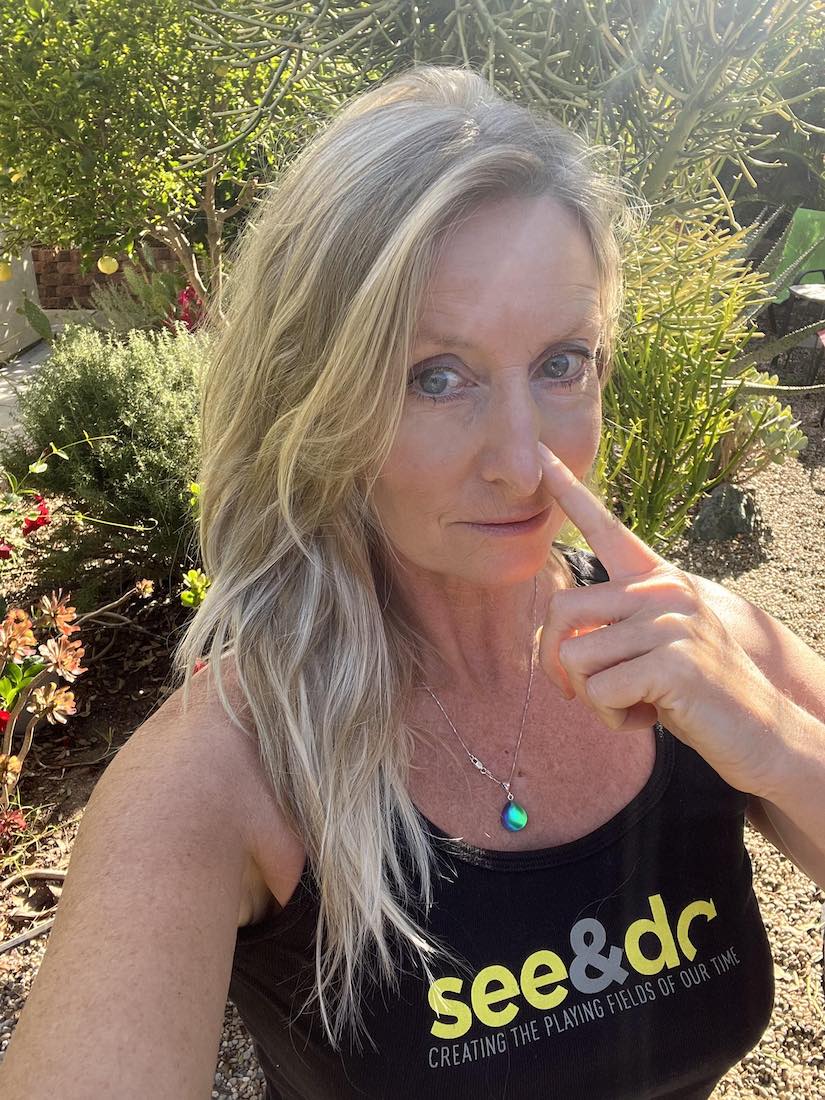Why breathwork matters
What if I told you that there was one skill that if you mastered it, would help increase your performance, improve the quality of your sleep (and therefore recover better) and make you less stressed and happier in your every waking moment. It can also help ease pain and improve your concentration. This skill acquisition needs no equipment, you’ve done it before for a period of your life and can get back to it in a few very easy steps. Like any physical function it can be learnt and refined as we are all doing it all the time, we are effective, but a lot of us aren’t skilled yet.
What is this magic sounding silver bullet to make us feel better? The act of breathing.
How we breathe changes our physiology, what we can do and how we think.
I’ve been training a group of women in San Diego for the past 2 months. They are a very fit and strong group of individuals who love to train. Motivation to move is definitely not their problem. They are all connected to the Navy in some way and their lives are busy and it’s fair to say they are stressed and could benefit from some breathing relaxation techniques. Many also have very young children which brings it’s own set of of challenges as well as joy.
My approach to skill acquisition, efficiency over effectiveness and finding meaning in your movement was definitely a change from the usual cross fit or circuit training styled workouts they were used to.
When I said we were going to be working on breathing they gave me that look of ‘oh god Julie has some funny ideas about stuff, this isn’t going to make me sweat and feel good and that’s what I need right now because I’m tired and stressed, BUT the stuff we do really makes some cool changes, ok, let’s give it a go’.
After a few weeks of working together I had earnt their trust. The feedback from the group was that the methods I shared were making a big difference in their lives and that some of the things that I showed them, although they may have looked simple, were actually “really sneaky hard” and were complementing the other workouts and things they loved to do.
As Joanne said to me last week “I feel I’ve been ‘working out’ for years but it’s gotten me no where really. Now I feel I’m learning in a way that means that I can improve on the things I want to do and realise what I’m capable of”.
Change takes courage and a growth mindset that is willing to learn.
As part of both the intro and conclusion to the session we worked on different breathing exercises and techniques. I learnt the diaphragmatic or belly breathing techniques from Mary Beth Gangemi who is an advanced Breathwork educator, certified Original Strength Coach among other skills. I also took some cues from various Acquatics and Combatives training I’ve completed with Vic Verdier.
According to Dr. Eric Cobb from the ZHealth system, we breathe 20 000-24 0000 times a day so how we do that can and will effect change in our bodies and minds. There are many systems that incorporate breathing into their practice as a foundation for movement and emotional wellness as well as athletic performance. Whether it’s golf, boxing or yoga, how you breathe matters and the first step is to become aware of it.
After a few days of regularly practising their new breathwork techniques and breathing exercises, both within the class and in their own time, Nicole increased the weight of her deadlift and attributed this to “finding it easier because of the breathing”. Karen found a way to get back to sleep in the middle of the night and Danni and Joanne felt benefits too in their daily lives as well as when training.
How we breathe matters which is why it’s integrated in my signature 12 week course, Reclaim and Increase your Strength RESET course. If you want to find out more about breathing and learn from MaryBeth you can book a free 15 minute Strategy call here.
To start becoming aware of your breath and how it makes you feel, try breathing in through the nose and out through the nose for thirty breaths. After the exhale see if you can have a natural pause. The inhale and exhale has a 1:2 ratio, so you can breathe in for 2 seconds then exhale for 4 then pause for 2-3 before repeating. Find a place where it’s quiet and calm and be mindful if you feel yourself become light headed. Start wherever you are at, and try this twice a day. See how you feel at the end of the 30 breaths. Most likely you will feel a lot calmer and focused. This first step is to become aware of your current breathing patterns. Some of you may find this comes naturally and for others you may want to open your mouth and breathe that way after a few breaths.
If you don’t yet believe in the power of the breath check out this article Therapeutic Breathwork by Jeremy Youst on PowerofBreath.com
If we are conscious of our breath we can engage in our own mind-body improvements and personal development. By taking care of our respiratory system we take care of our physical, emotional, mental and spiritual health. Belly breathing is an ‘uninhibited’ breathing and in this article Jeremy Youst discuss the holistic benefits of engaging with breath work for the well being of both body and mind.
So, one breath at a time, be aware of how you are breathing and of course keep breathing!
cheers,
Julie

